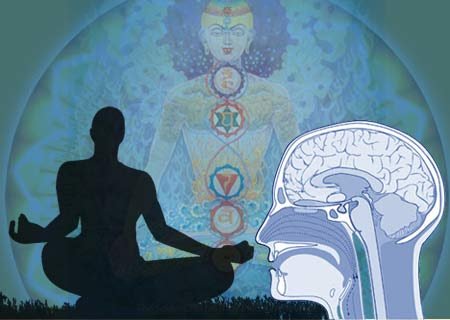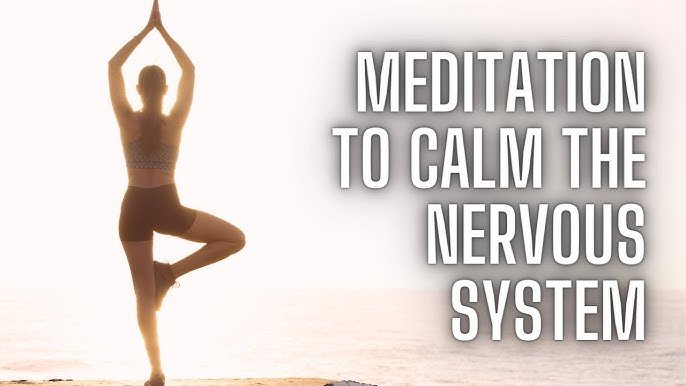In today’s fast-paced world, getting a good night’s sleep is becoming more difficult for many. Stress, screens, and constant stimulation wreak havoc on our ability to unwind and truly rest. But what if the answer to better sleep isn’t in another app, supplement, or mattress — but within ourselves? Enter meditation.
Meditation, once considered an esoteric spiritual practice, has now made its way into the mainstream — and for good reason. It’s not just hype; science is catching up with what ancient traditions have known for centuries. From reducing insomnia to improving sleep quality, meditation offers a natural, sustainable solution for better rest.
In this article, Deepika Seksaria explains how meditation can help you sleep better, learns the science behind it, and shares practical tips for getting started—even if you’ve never meditated before.
Understanding the Sleep Crisis

Before diving into meditation, let’s understand the magnitude of the sleep crisis. According to the Centers for Disease Control and Prevention (CDC), one in three adults in the United States does not get enough sleep. The National Sleep Foundation recommends 7–9 hours of sleep per night for most adults, but hectic lifestyles and stress often interfere.
Chronic sleep deprivation can lead to:
-
Reduced cognitive performance
-
Increased risk of heart disease and diabetes
-
Weakened immune function
-
Depression and anxiety
Sleep is very important for overall health, so finding sustainable ways to improve sleep quality is essential. This is where meditation comes into the picture, Here’s what How to do meditation.
What Is Meditation?

Meditation is a mind-body practice that involves focusing attention and eliminating the stream of jumbled thoughts that may be crowding the mind. There are many forms of meditation, including mindfulness, transcendental meditation, guided imagery, and body scan meditation.
Though rooted in spiritual traditions, modern meditation has been widely adopted in clinical and therapeutic settings for its mental and physical health benefits.
How Meditation Affects the Brain

Neuroscientific research shows that meditation thickens the prefrontal cortex—the part of the brain responsible for awareness, concentration, and decision-making. It also reduces activity in the amygdala, the center for fear and stress. These changes contribute to a calmer mind and better sleep.
The Science Behind Meditation and Sleep

Several scientific studies have shown that meditation positively affects sleep quality, duration, and the ability to fall asleep more quickly.
1. Reduces Stress and Cortisol Levels
Chronic stress is a leading cause of insomnia. When you’re stressed, your body releases cortisol, the “stress hormone,” which keeps you alert and ready for action—exactly the opposite of what you want at bedtime.
A 2016 study published in Behavioural Brain Research found that participants who practiced mindfulness meditation had significantly lower cortisol levels than the control group. Lower cortisol helps the body enter a relaxed state, making it easier to fall asleep.
2. Promotes Relaxation Response
Meditation triggers the relaxation response, a term coined by Dr. Herbert Benson at Harvard Medical School. This physiological response counters the stress response and is marked by slower breathing, reduced heart rate, and lower blood pressure.
This calm state is similar to the body’s pre-sleep mode, making it easier for the transition into deep sleep stages.
3. Improves Sleep Architecture
A 2015 randomized clinical trial published in JAMA Internal Medicine found that mindfulness meditation improved sleep quality among older adults with moderate sleep disturbances. Participants reported:
-
Less insomnia
-
Reduced daytime fatigue
-
Improved mood
Brain scans from other studies have shown that meditation may also increase melatonin production—a hormone responsible for regulating sleep-wake cycles.
4. Reduces Rumination and Overthinking
Many people suffer from an overactive mind at bedtime. Meditation helps by training the mind to focus and let go, which can prevent the spiraling thoughts that often cause insomnia.
Different Types of Meditation for Better Sleep

Not all meditative practices are the same. Here are the most effective types of meditation known to improve sleep:
1. Mindfulness Meditation
This involves paying attention to your thoughts, feelings, and sensations without judgment. It encourages staying present and accepting things as they are.
How it helps:
-
Reduces stress and anxiety
-
Trains the brain to let go of intrusive thoughts
-
Enhances awareness of sleep-disrupting habits
2. Body Scan Meditation
This practice involves mentally scanning your body from head to toe, observing sensations without trying to change them. It helps release physical tension.
How it helps:
-
Promotes physical relaxation
-
Enhances body awareness
-
Lowers heart rate and blood pressure
3. Guided Meditation
Here, a narrator or teacher leads you through a meditation session using voice prompts, sometimes accompanied by calming music or nature sounds.
How it helps:
-
Ideal for beginners
-
Easy to follow at bedtime
-
Reduces mental chatter through auditory cues
4. Loving-Kindness Meditation (Metta)
This involves sending goodwill and positive intentions toward yourself and others.
How it helps:
-
Lowers levels of stress and anxiety
-
Boosts feelings of emotional security and calmness
-
Reduces anger and resentment, which can keep you awake
5. Mantra or Transcendental Meditation
Involves repeating a word, sound, or phrase (mantra) to focus the mind.
How it helps:
-
Induces a deep state of rest
-
Creates a mental rhythm that quiets the mind
-
Useful for people who find breath-focused meditations challenging
How Meditation Calms the Nervous System

1. Parasympathetic Activation Explained
Meditation activates the parasympathetic nervous system—also known as the “rest and digest” system. This shifts your body out of fight-or-flight mode, lowering heart rate, blood pressure, and stress levels—all crucial for quality sleep.
2. Reduced Cortisol and Adrenaline Levels
During meditation, the production of cortisol and adrenaline decreases, which not only helps you feel calmer but also prepares the body for rest. This biochemical change is a big reason meditation works so well as a sleep aid.
Best Meditation Techniques for Sleep

1. Mindfulness Meditation
Mindfulness involves focusing on your breath or bodily sensations while allowing thoughts to come and go without judgment. Practicing this at night can calm mental chatter and reduce anxiety.
2. Guided Meditation and Body Scans
Listening to a guided meditation or conducting a body scan helps bring awareness to the present moment and bodily tension, often leading to immediate relaxation and sleepiness.
3. Breathing Exercises and Pranayama
Deep breathing exercises like 4-7-8 breathing or alternate nostril breathing slow your heart rate and oxygenate your blood, promoting deep relaxation before bedtime.
How to Start a Bedtime Meditation Practice

Here’s a step-by-step guide for starting your meditation routine to improve sleep:
1. Create a Sleep-Friendly Environment
-
Dim the lights
-
Avoid screens 30–60 minutes before bed
-
Use aromatherapy like lavender or chamomile
-
Ensure your room is quiet and cool
2. Set a Time and Stick to It
Consistency is key. Choose a time every evening, such as 30 minutes before bed, to make meditation a habit.
3. Choose a Meditation Type
Start with guided meditations if you’re new. Apps like Headspace, Calm, and Insight Timer offer sleep-specific sessions.
4. Begin with Short Sessions
Start with 5–10 minutes and gradually increase to 20–30 minutes as you become comfortable.
5. Focus on Your Breath or a Sensation
The simplest method is to close your eyes, breathe deeply, and focus on the sensation of air entering and leaving your nostrils. When your mind wanders (and it will), gently bring it back to the breath.
Meditation vs. Sleep Aids: A Natural Alternative

Many people turn to over-the-counter sleep aids or even prescription medication to deal with insomnia. While these can offer short-term relief, they may come with side effects like dependency, grogginess, and memory issues.
Meditation, on the other hand:
-
Has no side effects
-
Can be practiced anywhere
-
Improves sleep quality over the long term
-
Also benefits your mental and physical health overall
In fact, a 2014 meta-analysis in JAMA Internal Medicine concluded that mindfulness meditation can be as effective as some sleep medications in improving sleep quality—especially in cases of chronic insomnia.
Beyond Sleep: Other Benefits of Meditation

Incorporating meditation into your daily routine not only improves sleep; meditation also has many other benefits:
-
Reduced anxiety and depression: Regular meditation changes brain structure and function, particularly in areas related to emotional regulation.
-
Improved concentration and memory: Meditation enhances focus and working memory, useful both professionally and personally.
-
Lower blood pressure and heart rate: Long-term practice supports cardiovascular health.
-
Boosted immune system: Regular practitioners show stronger immune responses.
Addressing Common Concerns and Misconceptions
“I can’t meditate; my mind is too busy.”
That’s exactly why you should meditate! Meditation isn’t about having no thoughts—it’s about recognizing when your mind wanders and gently guiding it back.
“I tried it once, and it didn’t help.”
Like any skill, meditation takes time and practice. The benefits are cumulative. Try it daily for a few weeks and observe the changes.
“I don’t have time.”
Even 5 minutes before bed can make a difference. Meditation is about quality, not quantity.
Real Stories: Meditation and Sleep
Many people have experienced life-changing sleep improvements with meditation:
Emily, 32, Accountant:
“I used to wake up 3–4 times every night, always feeling restless. After doing 10 minutes of mindfulness meditation nightly for a month, I now sleep through the night almost every time.”
Ravi, 45, Entrepreneur:
“As someone running a startup, I was constantly stressed and sleep-deprived. Guided meditations from Calm became my nightly ritual, and I’ve never felt more rested in years.”
Conclusion
Meditation offers a powerful, evidence-based approach to improving sleep quality. By calming the mind, reducing stress, and enhancing emotional regulation, meditation addresses some of the root causes of sleep disturbances. The scientific consensus supports its efficacy, and countless individuals have found relief from sleepless nights through regular meditation practice.
Whether you’re struggling with insomnia, occasional sleep troubles, or simply want to enhance your overall well-being, incorporating meditation into your bedtime routine can be a game-changer. With consistent practice, the journey toward better sleep and a more balanced life is well within reach.
A quick overview of the topics covered in this article.
























